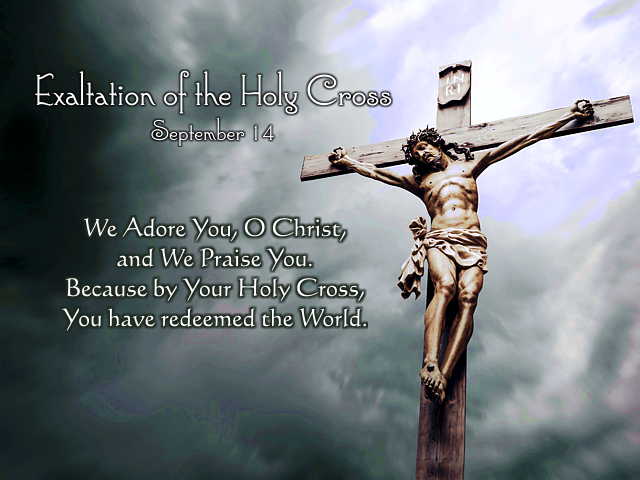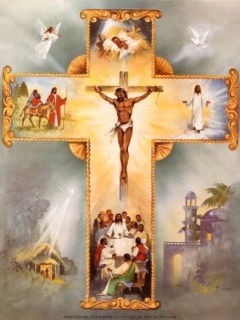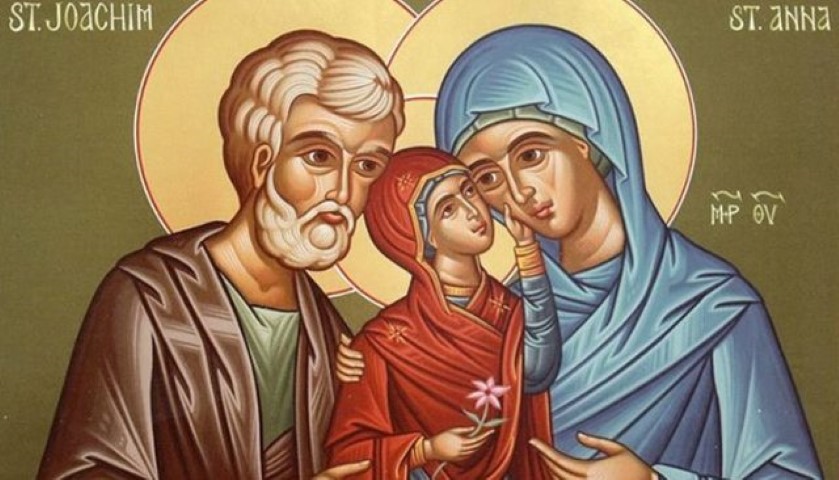Rome, August 10, 2024
8/12/2024
Accessibility Tools
|
Our dear friend and brother in the Most Holy Divine Will, Thomas Lee Osborne, entered into Eternal Life on November 6, 2024. Tom, born in 1947, the year Servant of God Luisa Piccarreta entered into Heaven, was a humble man who worked tirelessly to make the Servant of God Luisa Piccarreta known to the world, …
|
Tom, born in 1947, the year Servant of God Luisa Piccarreta entered into Heaven,
Luisa Piccarreta known to the world, working even shortly before his entrance into Eternity.
The world knows Luisa better from his blessed efforts.
His love, patience, and humility touched the hearts of all who knew him,
and he will be greatly missed. Thank you, Tom, for your love and generosity in the Fiat!
Please keep Tom and his family in your prayers.
Requem Aeternam dona ei, Domine, et Lux Perpetua Luceat ei. Requiescat in Pace. Amen. Fiat!
Obituary: https://www.myersdurborawfh.com/obituaries/thomas-osborne
Livestream funeral: https://www.youtube.com/watch?v=dmAxK2VD5j8
https://www.youtube.com/@saintjosephcatholicchurche3988/streams
Letters of Luisa #1 – May the Divine Consoler, Jesus, Console you and put Balm on the deep wound opened in your hearts by the loss of dear M… But no, you have not lost [her]. [She] has left for Heaven and you have acquired a peacemaker and protector before God, just as [she] was on earth. [She] will continue to do, from there, the office of peacemaker; (…) Therefore, all we can do is to say “Deo gratias” for the fortunate M.., and “Fiat” for ourselves who have lost [her], and this “Fiat” will Remedy everything. So, let us not get discouraged by sorrow and losses; they are always bearers of Graces, Light, and most Surprising Aids. We have an Omnipotent Will with us; therefore there is nothing to fear… Blessed Jesus and our Celestial Mama will be together with you, to Guide you and Dispose all things according to their Adorable Will.
Your most devoted servant, Luisa Piccarreta – Corato, February 24, 1932
VOL. 19 – February 28, 1926
Every time the soul occupies herself with herself, she loses one act in the Divine Will. What it means to lose this act.
I continued amid my usual fears, and my always lovable Jesus, making Himself seen, all goodness told me: “My daughter, do not lose time, because every time you occupy yourself with yourself it is an act of my Will that you lose; and if you knew what it means to lose one single act in my Will…! You lose a divine act – that act which embraces everything and everyone, and which contains all the goods that exist in Heaven and on earth. More so, since my Will is a continuous act which never stops Its course, nor can It wait for you when you stop with your fears. It is more appropriate for you to follow It in Its continuous course, than for It to wait for you to place yourself on the way in order to follow It. And not only do you lose time, but having to pacify you and to raise you from your fears in order to put you on the way in my Will, you force Me to occupy Myself with things which do not regard the Supreme Volition. Your very Angel, who is near you, remains on an empty stomach, because every act you do in It, as you follow Its course, is one more accidental beatitude which he enjoys, being near you; and it is a doubled paradise of joys that you offer him, in such a way that he feels happy in his destiny of having you in his custody. And since the joys of Heaven are communal, your Angel offers the accidental beatitude he has received from you, his doubled paradise, to the whole Celestial Court as the fruit of the Divine Will of his protected one. All make feast and magnify and praise the power, the sanctity, the immensity of my Will. Therefore, be attentive; in my Will one cannot lose time – there is much to do; you have to follow the act of a God, which is never interrupted.”

It is the teaching of the Church, and in accordance with what we read in the Old and New Testaments, that the angels, who are divine messengers, exercise a particular care and protection over individuals on earth, and help them in attaining salvation. In Exodus (20:20), the Lord God told Moses, “I am sending an angel before you, to guard you on the way and bring you to the place I have prepared,” and after the angel had liberated St. Peter from prison, the latter remarked, “Now I know for certain that the Lord has sent his angel to rescue me from Herod’s clutches” (Acts 12:11). The common teaching of theologians is that every human being, not merely the baptized, has a special guardian angel from birth, and this they derive from Christ’s words: “Do not despise one of these little ones, for I say to you that their angels in heaven always see the face of my Father, who is in Heaven” (Matt. 18:10.) Referring to the same text, St. Basil (see January 2) writes: “Every one of the faithful has an angel standing at his side as educator, and guide, directing his life” (Against Eunomius III, 1). Devotion to the angels began with St. Benedict (see July 11) and then steadily increased from the time of St. Gregory the Great (see September 3) to St. Bernard of Clairvaux (see August 20), who was perhaps the most eloquent exponent of devotion to the Guardian Angels. The final prayer in today’s Mass speaks of the angels keeping us free from danger in this life and bringing us to the joy of eternal life. A feast in honor of the Guardian Angels was celebrated in Valencia, Spain, as early as 1411; it then spread through Spain and into France. Pope Paul V introduced it into the Roman Calendar in 1608, and Pope Clement X later (1670) set its celebration for October 2.
For some 300 years now, the feast of the Holy Guardian Angels has been celebrated in the Catholic Church on October 2. Few things, however, have become as alien to the contemporary Christian as the concept of guardian angels. The Old Testament says of the angel that guards the people of Israel: “Heed him and hearken to his voice”—that means that I should become open to this image of a God who is everywhere around me and that I should not stubbornly oppose to him my own fleeting wishes and whims. It is based on the fact that we ourselves have become manipulatable and believe in no other design for our life than that which we have made for ourselves. In consequence, we end by becoming the movable scenery of a technical world that we try to maneuver this way and that. We no longer speak, then, of guardian angels, except perhaps in a few idiomatic expressions that even we ourselves do not take too literally. Granted, we speak all the more frequently about security and about how we can protect ourselves against the negative aspects of modern life. The flight of humanity from humanity as from its own work is on the increase, and we come to recognize the inadequacy of our protective devices—however sophisticated they may be—only when new refinements reveal that they have already been superseded. It would, of course, be foolish and unrealistic on our part to place our trust in guardian angels rather than in technology; the divine protection is not so easily commandeered and is not intended to be thrown into bold relief. Speaking of angels means being convinced that the world is everywhere filled with the divine presence of God and that his presence is bestowed on each and every one of us as a power that summons and protects us.
Ratzinger, J. (1992).
Mystical Mothers for Priests in the Divine Will
Mass Celebrated by
Fr Mark Byrne SOLT
in person and online event
(with the approval of the Luisa Piccarreta Official Public Association Corato)
On: Saturday 14 September @ 10.30am
(Dublin, Ireland Time)
In: The Missionaries of Charity
Mother Teresa’s Order of Sisters
Address: 223 South Circular Road,
Dublin, D08 V8Y4
Thank you from the Mystical Mothers for Priests in Divine Will Mission for responding to this call in the Divine Will.
At this Mass Fr Mark will explain how to enrol for all who are ready to give their Fiat to consecrate their lives to being a Mystical Mother for Priests in Divine Will and spiritually agree to adopt a Priestly son in the Divine Will.
We do appreciate that some people are still in the discernment process. These people will also be attending on the day but not giving their Fiat just yet, which is perfect.
Fr Mark has prepared a formal Adoption Certificate for this event. Please see attached. Those who attend the Mass in person will receive an Adoption Certificate and those on line who have given their commitment and wish to receive a formal signed Adoption Certificate need to email Bernie ict@divinewillfamily.org confirming that you are consecrating on 14 September and are giving your Fiat. In due course you will be sent by post the original Adoption Certificate signed by Fr Mark Byrne, wherever you may be in the world.
Thank you, Lord.
In advance of giving your Fiat to being a Mystical Mother for Priests we recommend that you check out all the information available on Mystical Mothers for Priests on www.divinewillfamily.org, under tab Intercession for the Church; listen to Fr Mark’s two video recordings and most importantly pray to God for an answer to this calling.
If you are based on the island of Ireland and are house bound or in a nursing home and wish to become a Mystical Mother for Priests in Divine Will, and would like a visit with Fr Mark, or know someone who wants to become a Mystical Mother for Priests in Divine Will, just email ict@divinewillfamily.org
The Official Association of Luisa Piccarreta are currently printing their Booklets for Mystical Mothers for Priests in Divine Will which once available we will send to you all.
Going forward Fr Mark will schedule monthly Masses for all Mystical Mothers for Priests in Divine Will who have signed up; or are in a discernment process or are New Mystical Mothers for Priests in Divine Will on a rolling monthly basis as an eternal act in the Divine Will.

More reading on the Feast of the Exaltation of the Cross
and
Jesus embraces the Cross
Eighteenth Hour
The Hours of the Passion
My tortured Good, with You I repair, with You I suffer. But I see that Your enemies hurl You down the stairs; the people await You with fury and eagerness; they make You find the Cross ready, which You long for with many sighs. And You—with Love You gaze on It, and with firm step You approach It and embrace It. But first You kiss It, and as a shiver of Joy runs through Your Most Holy Humanity, with highest contentment You gaze on It again, measuring Its length and breadth. In It, already, You establish the portion for each creature. You dower them all, enough to bind them to the Divinity with a bond of Marriage, and make them heirs of the Kingdom of Heaven. Then, unable to contain the Love with which You Love them, You kiss the Cross  again, and say, “Adored Cross, finally I embrace you. You were the longing of My Heart, the martyrdom of My Love. But you, O Cross, have delayed until now, while My steps were always toward you. Holy Cross, you were the goal of My desires, the purpose of My Existence down here. In you I concentrate My whole Being, in you I place all My children, and you will be their Life, their Light, defense, custody and strength. You will assist them in everything, and will bring them gloriously to Me in Heaven. O Cross, Pulpit of Wisdom, you alone will teach True Sanctity; you alone will form the heroes, the athletes, the martyrs, the Saints. Beautiful Cross, you are My Throne, and since I have to leave the earth, you will remain in My place. To you I give all souls as dowry—keep them, save them; I entrust them to you!”
again, and say, “Adored Cross, finally I embrace you. You were the longing of My Heart, the martyrdom of My Love. But you, O Cross, have delayed until now, while My steps were always toward you. Holy Cross, you were the goal of My desires, the purpose of My Existence down here. In you I concentrate My whole Being, in you I place all My children, and you will be their Life, their Light, defense, custody and strength. You will assist them in everything, and will bring them gloriously to Me in Heaven. O Cross, Pulpit of Wisdom, you alone will teach True Sanctity; you alone will form the heroes, the athletes, the martyrs, the Saints. Beautiful Cross, you are My Throne, and since I have to leave the earth, you will remain in My place. To you I give all souls as dowry—keep them, save them; I entrust them to you!”
In saying this, eager, You let It be placed upon Your Most Holy Shoulders. Ah, my Jesus, the Cross is too light for Your Love, but the weight of our sins unites to that of the Cross—enormous and immense, as the expanse of the Heavens. And You, my wearied Good, You feel crushed under the weight of so many sins. Your soul is horrified at their sight, and feels the pain of each sin. Your Sanctity remains shaken before so much ugliness, and as the Cross weighs upon Your shoulders, You stagger, You pant, and a mortal sweat creeps through Your Most Holy Humanity. Oh please, I pray you, my Love—I don’t have the heart to leave You alone—I want to share the weight of the Cross with You; and to relieve You from the weight of sins, I cling to Your Feet. I want to give You, in the name of all creatures, love for those who do not love You, praises for those who despise You, blessings, thanksgivings, obedience on behalf of all. I promise that in any offense You receive, I intend to offer You all of myself in reparation, to do the acts opposite to the offenses the creatures give You, and to console You with my kisses and continuous acts of love. But I see that I am too miserable; I need You to be able to really Repair You. Therefore I unite myself to Your Most Holy Humanity, and together with You I unite my thoughts to Yours in order to Repair for the evil thoughts—mine, and of all; my eyes to Yours, to Repair for the evil glances; my mouth to Yours, to repair for the blasphemies and the evil discourses; my heart to Yours, to repair for the evil tendencies, desires and affections. In a word, I want to Repair everything that Your Most Holy Humanity Repairs, uniting myself to the Immensity of Your Love for all, and to the Immense Good You do to all. But I am not yet content. I want to unite myself to Your Divinity, and I dissolve my nothingness in It, and in this way I give You Everything. I give You Your Love to quench Your bitternesses; I give You Your Heart to relieve You from our coldness, lack of correspondence, ingratitude, and the little love of the creatures. I give You Your Harmonies to cheer Your hearing from the deafening blasphemies It receives. I give You Your Beauty to relieve You from the ugliness of our souls, when we muddy ourselves in sin. I give You Your Purity to relieve You from the lack of righteous intention, and from the mud and rot You see in many souls. I give You Your Immensity to relieve You from the voluntary constraints into which souls put themselves. I give You Your Ardor to burn all sins and all hearts, so that all may Love You, and no one may offend You, ever again. In sum, I give You all that You are, to give You Infinite Satisfaction, Eternal, Immense and Infinite Love.

My poor mind was wandering in the immense Sea of the Divine Fiat, in which everything is in act, as if there were no past and no future, but everything present and everything in act. So, whatever thing it wants to find of the works of its Creator in the Divine Will, my little soul finds it as if It were just doing it, in act.
And since I was thinking about the birth of my Celestial Mama, to give Her my poor homages, and I was calling all Creation together with me to sing the praises of the Sovereign Queen, my sweet Jesus told me: “My daughter, I too, together with you and with all Creation, want to sing the praises of the birth of the height of My Mama. You must know that this birth enclosed within itself the rebirth of the whole human family, and all Creation felt reborn in the birth of the Queen of Heaven. Everything exulted with gladness—they felt happy to have their Queen. Up to that moment, they had felt like a people without its Queen, and in their muteness they were waiting for that happy day in order to break their silence, and say: ‘Glory, love, honor to She who comes into our midst as our Queen. We shall no longer be without defense, without anyone who dominates us, without feast, because She has arisen, who forms our everlasting glory.’
“This Celestial Baby Girl, by keeping Our Divine Will intact within Her soul, without ever doing Her own, reacquired all the rights of Adam innocent before Her Creator, and the sovereignty over all Creation. Therefore, all felt themselves being reborn in Her, and We saw in this Holy Virgin, in Her little Heart, all the seeds of the human generations. So, through Her, humanity reacquired the rights lost, and this is why Her birth was the most beautiful, the most glorious birth. From Her very birth, She enclosed within Her maternal little Heart, as though in-between two wings, all generations, as children reborn in Her virginal Heart, so as to warm them, keep them sheltered, and raise them and nourish them with the blood of Her maternal Heart.
reborn in Her, and We saw in this Holy Virgin, in Her little Heart, all the seeds of the human generations. So, through Her, humanity reacquired the rights lost, and this is why Her birth was the most beautiful, the most glorious birth. From Her very birth, She enclosed within Her maternal little Heart, as though in-between two wings, all generations, as children reborn in Her virginal Heart, so as to warm them, keep them sheltered, and raise them and nourish them with the blood of Her maternal Heart.
“This is the reason why this tender Celestial Mother loves creatures so much—because all are reborn in Her, and She feels the life of Her children within Her Heart. What can Our Divine Will not do wherever It reigns and has Its life? It encloses everything and everyone, and makes one the provider of good to all. So, all feel, under Her blue mantle, the maternal wing of their Celestial Mother, and they find in Her maternal Heart their little place in which to take cover.
“Now, My daughter, one who lives in My Divine Will renews her rebirth and redoubles the rebirths for all human generations. When My Supreme Will lives inside a heart and lays the fullness of Its endless light within it, It centralizes everything and everyone, It does everything, It renews everything, It gives back all that, for centuries upon centuries, It has not been able to give through the other creatures. So, this creature can be called the dawn of the day, the daybreak that calls the sun, the sun that gladdens all the earth, illuminates it, warms it, and with its wings of light, more than tender mother, embraces everything, fecundates everything; and with its kiss of light, it gives the most beautiful tints to flowers, the most delicious sweetness to fruits, maturity to all plants. Oh! if My Divine Will reigned in the midst of creatures, how many prodigies would It not operate in their midst?
“Therefore, be attentive; everything you do in My Divine Fiat is a rebirth that you have in It; and to be reborn in It means to be reborn in the Divine order, to be reborn in the light, to be reborn in the sanctity, in the love, in the beauty. And in each act of My Will, the human will undergoes a death, dying to all evils, and it lives again to all goods.”
My little mind is always running inside and outside of the Divine Volition, and for however much it goes around I am never tired. I feel a Mysterious Strength that, enticing me, never says enough to me, but says: “Run, seek Its Acts, Love them, adore them, kiss them, and Transform yours to Its, and form all your Life of Divine Will.”
And if I do not know how to say anything, in my courses and rounds I tell my little tale: “I love You, I love You, I adore You, I bless You, O Adorable Will, in all Your Works.” And since today is the Nativity of the Queen of Heaven, I stopped to think about the Great Portent of Her Birth in which it seemed Heavens and earth were at attention in order to adore this Divine Prodigy.
And my Highest Good Jesus, with Indescribable Love and Tenderness, told me: “Blessed daughter of My Will, the Birth of My Celestial Mama encloses all Wonders, all Prodigies united together—but do you know why? She was not only born Pure, Holy, Beautiful, Immaculate, no, no, but My Divine Will was born together with the Celestial Little Baby Girl. It  was already Conceived and enclosed in Her in order to form Its Operating and Growing Life in the Gracious Little Baby Girl. My Will enclosed Itself in order to be born together with Her, to make use of the organ of this Celestial Creature in order to Operate and form Its Divine Life.
was already Conceived and enclosed in Her in order to form Its Operating and Growing Life in the Gracious Little Baby Girl. My Will enclosed Itself in order to be born together with Her, to make use of the organ of this Celestial Creature in order to Operate and form Its Divine Life.
“This was a Prodigy that only the Eternal Love, the Divine Wisdom and Power, could work. It was not only Life that was given to Her, nor only the Gift of being free from original sin—this would have been nothing for Our Power. What was amazing and called the attention of everyone, was My Will that was Born together with Her into the world, so much so that the Heavens and earth remained shaken by it, placed themselves at attention, and felt a Mysterious Strength, that same Strength that Dominated and Conserved the whole of Creation. It was Our very Will that moved everything, and placed Itself and the whole of Creation at the service and disposition of this Newborn Baby Girl.
“So this Birth of My Will together with Her was the Origin that called all the other Prodigies to Centralize them in Her. Where My Fiat Reigns there is no Good that It does not enclose, nor Prodigy that It does not complete. It wants to display Its Love and Power by forming Its Operating Life, and placing of Its Own for however much it is possible for a creature to contain. Therefore, admire and thank Our Supreme Being that arrives at so much Love toward this Newborn Baby Girl as to let Our Unborn Will, that has neither beginning, nor end, nor limits in Its confines, be born in Her.”
So I followed the Work of the Divine Will in all created things, and my Lovable Jesus added: “My daughter, created things were done by Us in order to form many ways so that man could make use of them to come to Us. Therefore, We left everything open, so that when he wanted to come he would not need to knock or open in order to come to Us. He was Our Son, it was Just and Reasonable that all the ways to go to his Celestial Father be held open, and We be with each other in order to Love him and be Loved, and as son to ask for Graces and Favors. But do you know what this ungrateful son did? He himself closed the ways, he formed the bars, and by sinning he formed the doors, closing the correspondence with One who had given him Life.
“Now, do you know who returns to open the doors, to burn the bars? One who Loves Me and Lives in My Divine Will. Love and My Fiat are Powerful Forces that burn and empty everything, and they open all the ways to place the distant son again in the arms of his Celestial Father. Now, you must know that all the virtues, the good works, the love, and doing My Divine Will, form the Nobility of man. But the substance of this Nobility is the wealth of My Grace. All good becomes leaned on It, which becomes the Font and Conservator of all the good that he can do. Otherwise one can say that man is Noble by Origin, but since he lacks the wealth, he finds himself almost by necessity doing acts not Worthy of his Nobility. Indeed, if one is noble and is not rich, he cannot dress nobly, or live in palaces. In this way his nobility is reduced to only the memory that he was noble. So, in one who does not possess the wealth of My Grace, all good is reduced to squalid virtue that very often makes seen that he is not rich with patience, with prayer, with charity, and so forth. Now, good forms Nobility, the wealth of My Grace conserves it, My Will forms the King who Dominates and with Divine Mastery Rules and Orders all.
“Here I am, O Holy Mama, near Your cradle, to be spectator of Your Prodigious Birth. The heavens are stupefied, the sun is fixed upon You with its light, the earth exults with joy and feels honored to be inhabited by its Little Newborn Queen; the Angels compete among themselves in surrounding Your cradle, to honor You and to be ready for Your wishes. So, all honor You and want to celebrate Your birth. I too unite myself with all, and prostrate before Your cradle, where I see, as though enraptured, Your mother Anne and Your father Joachim, I want to tell You my first word, I want to entrust to You my first secret. I want to empty my heart into Yours, and say to You: “My Mama, You who are the Dawn, Herald of the Divine Fiat upon the earth, O please! put to flight the gloomy night of the human will in my soul and in the whole world. Ah! yes, may Your birth be our hope which, like a New Dawn of Grace, may regenerate us in the Kingdom of the Divine Will.”
 soul to the Celestial Little Queen
soul to the Celestial Little Queen“Here I come again to You, my dear little Baby, in the house of Nazareth. I want to be spectator of Your tender age; I want to give You my hand as You take Your first steps and speak with Your holy mama and with Your father Joachim. Little as You are, after you have learned how to walk, You help Saint Anne in the little tasks. My little Mama, how dear You are to me, and all striking. O please! give me Your Lessons, that I may follow Your childhood and learn from You, also in the little human actions, to live in the Kingdom of the Divine Will.”
The soul:
“Holy Mama, who can resist seeing You cry and not listening to Your holy lessons? I, with all my heart, promise, swear, never to do my will – never again. And You, Divine Mama – never leave me alone, so that the Empire of Your presence may crush my will, to let me reign, always – always in the Will of God.”
Ejaculatory Prayer: “Powerful Queen, captivate my heart, to enclose it in the Will of God.”

The Virgin Mary in the Kingdom of the Divine Will
Day Thirty-One
The Queen of Love:
Blessed daughter, how content I am. I could not decide to narrate to you My Departure for Heaven if I did not leave My daughter safe on earth, Endowed with Divine Will. But know that from Heaven I will not leave you—I will not leave you orphan; I will Guide you in everything, and from your smallest need, up to the greatest—call Me, and immediately I will Come to you to Act as your Mama.
Now, dear daughter, listen to Me. I was already infirm with Love. The Divine Fiat, in order to console the Apostles, and also Myself, allowed almost in a Prodigious Way that all the Apostles, except one, would surround Me like a crown at the moment I was about to depart for Heaven. All felt a blow to their hearts, and cried bitterly. I consoled them all; I entrusted to them, in a special way, the nascent Holy Church, and I imparted My Maternal Blessing to all, leaving in their hearts, by virtue of it, the Paternity of Love toward souls. My Dear Son did nothing but come and go from Heaven; He could no longer be without His Mama. And as I gave My last breath of Pure Love in the Endlessness of the Divine Will, My Son received Me in His arms and took Me to Heaven, in the midst of the Angelic Choirs that sang Praise to their Queen. I can say that Heaven emptied Itself to come to meet Me. All celebrated for Me, and in looking at Me, remained Enraptured and said in chorus: “Who is She, who comes from the exile, all cleaving to Her Lord—All Beautiful, All Holy, with the Scepter of Queen? And Her Greatness is such that the Heavens have lowered themselves to receive Her. No other creature has entered these Celestial Regions so Adorned and Striking—so Powerful as to hold Supremacy over everything.”
Now, My daughter, do you want to know who She is—for whom the whole of Heaven sings Praise and remains Enraptured? I am She who never did Her own will. The Divine Will Abounded so much with Me as to Extend Heavens More Beautiful, Suns More Refulgent, Seas of Beauty, of Love, of Sanctity, such that I could give Light to all, Love and Sanctity to all, and Enclose everything and everyone within My Heaven. It was the Work of the Divine Will Operating in Me that had accomplished such a Great Prodigy; I was the only creature entering Heaven, who had Done the Divine Will on earth As It is Done in Heaven, and who had formed Its Kingdom in My Soul. Now, in looking at Me, the whole Celestial Court was Amazed, because as they looked at Me, they found Me Heaven; and returning to look at Me, they found Me Sun; and unable to remove their gaze from Me, looking at Me more deeply, they saw Me Sea, and found in Me also the most clear earth of My humanity, with the Most Beautiful Flowerings. And, Enraptured, they exclaimed: “How Beautiful She is! She has everything Centralized within Herself—She lacks nothing. Among all the Works of Her Creator, She is the only Complete Work of the whole Creation.”
Now, blessed daughter, you must know that this was the First Feast made in Heaven for the Divine Will, which had worked so many Prodigies in Its creature. So, at My Entrance into Heaven, the whole Celestial Court celebrated that which, Beautiful and Great, the Divine Fiat can Operate in the creature. Since then, these Feasts have never been repeated, and this is why your Mama Loves so much that the Divine Will Reign in souls in an Absolute Way: to give It the field in order to let It repeat Its Great Prodigies and Its Marvelous Feasts.